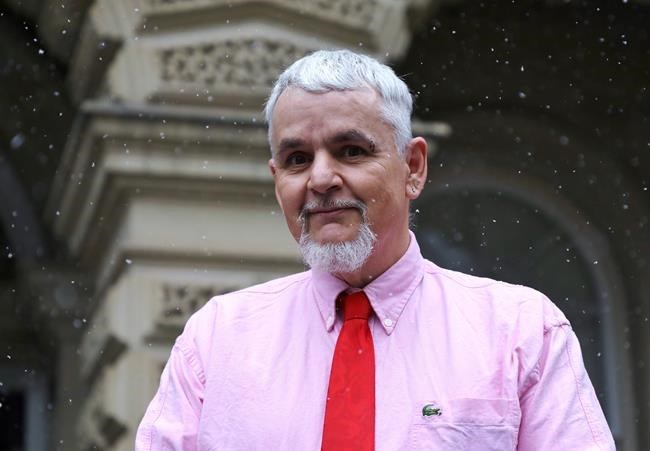TORONTO — Denying drug-addicted prisoners access to clean syringes deprives them of essential health care, which is a violation of their constitutional rights, an Ontario court heard on Friday.
Additionally, activists argued in their application, a new needle-exchange program being rolled out in penitentiaries across the country fails to address the violation.
A former inmate, along with the Canadian HIV/AIDS Legal Network and three other organizations, want Superior Court to find that prisoners have a right to easy, confidential, and effective access to syringe programs.
"Reasonable access to sterile injection equipment is an essential harm-reduction measure," lawyer Lori Stoltz told Justice Edward Belobaba. "This is a public health problem. It is a public health imperative to provide prisoners with access to sterile injection equipment."
The applicants maintain the government's needle-exchange program is flawed because it relies on the warden or designate to conduct a threat assessment before granting an inmate access. The requirement, they say, deters drug-abusing inmates from applying for safe needle kits because guards might single them out for added scrutiny, they might lose privileges, or parole authorities might take a dim view.
Security concerns, they argue, have no place in what should be treated as a confidential health issue.
For its part, the federal government maintains needles pose a real risk to guards, who might accidentally prick themselves, or other inmates.
"We do have evidence of risk," Kathryn Hucal, a government lawyer, told court.
The purpose of a threat assessment is to provide inmates with sterile equipment that doesn't compromise safety, Hucal said. Nor is there evidence that inmates are staying away from the new program because they fear retaliation, she said.
"There is sufficient confidentiality with the threat-assessment model," Hucal said. "There is sufficiently high uptake that demonstrates the threat assessment model is working. There is no deterrent effect."
Correctional authorities have to date rolled out the needle-exchange program in nine of 43 federal prisons. Latest figures show about 42 per cent of prisoners who apply for the program are turned down — a fact the applicants say leaves those inmates without access to clean needles.
Steve Simons, 50, who left prison nine years ago, said access to clean syringe kits is essential to stop infectious diseases such as hepatitis or HIV from spreading both inside prisons and more generally once infected inmates are released.
"I contracted hepatitis C because sterile injection equipment was not available," Simons said in an interview outside court. "Inmates will not access sterile injection equipment if they have to go through the procedure that they have in place now. It affects them in parole hearings, it goes in your institutional file."
Claims that syringes pose a threat to guards are overblown, he said.
Stoltz's co-counsel Adrienne Telford noted the new program limits inmates to one needle a day. Some users, she said, inject themselves several times daily, meaning they are still forced to reuse or share needles.
"The limit of one is arbitrary," Telford said.
Several interveners, including the B.C. Civil Liberties Association, are part of the constitutional challenge. The Canadian Public Health Association said meaningful and effective access to safe injection equipment is essential harm reduction that is an integral part of public health promotion.
Belobaba, who seemed skeptical that it's possible for drug-abusing inmates to escape the notice of guards or fellow prisoners, will rule on the charter challenge at a later date.
This report by The Canadian Press was first published on March 6, 2020.
Colin Perkel, The Canadian Press



